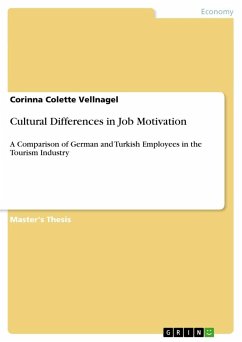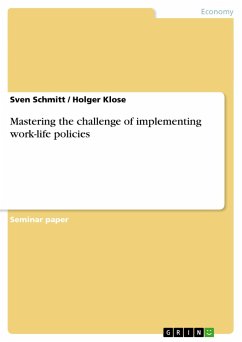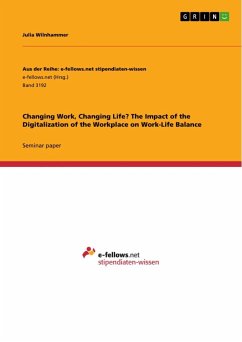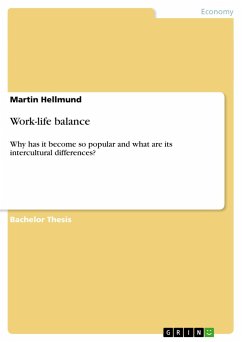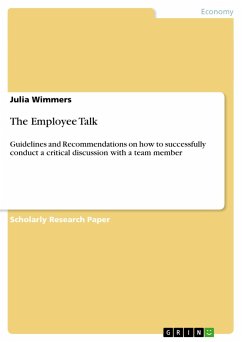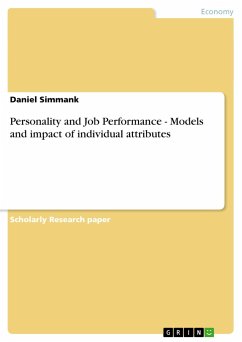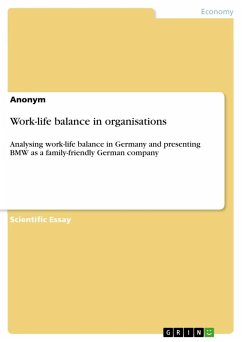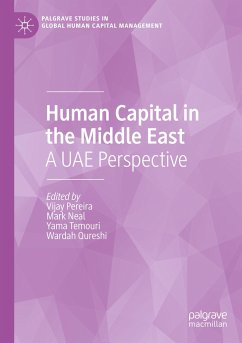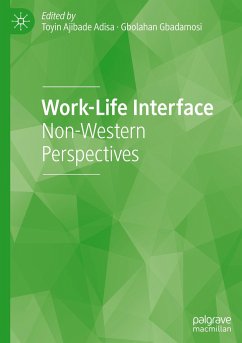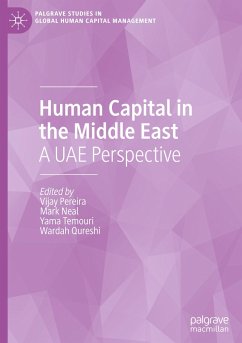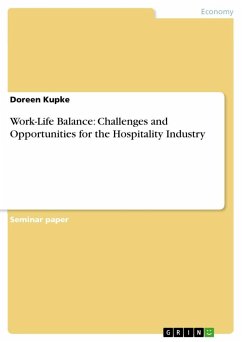
Work-Life Balance: Challenges and Opportunities for the Hospitality Industry

PAYBACK Punkte
0 °P sammeln!
Seminar paper from the year 2012 in the subject Leadership and Human Resource Management - Miscellaneous, grade: 1,0, University of Applied Sciences Heide, course: Human Resources Management, language: English, abstract: Table of contents 1. Introduction4 1.1 Background and purpose of the topic4 1.2 Methodology5 2. Current Working Conditions in the hospitality industry5 2.1 Issue statement5 2.2 Special Working Environment and Conditions6 2.3 Subsuming of the current situation7 3. Description and Analysis of different Work-Life Balance methods and8 instruments8 3.1 Definition of Work-Life Balan...
Seminar paper from the year 2012 in the subject Leadership and Human Resource Management - Miscellaneous, grade: 1,0, University of Applied Sciences Heide, course: Human Resources Management, language: English, abstract: Table of contents 1. Introduction4 1.1 Background and purpose of the topic4 1.2 Methodology5 2. Current Working Conditions in the hospitality industry5 2.1 Issue statement5 2.2 Special Working Environment and Conditions6 2.3 Subsuming of the current situation7 3. Description and Analysis of different Work-Life Balance methods and8 instruments8 3.1 Definition of Work-Life Balance8 3.2 Importance of Work-Life Balance for the hospitality industry10 3.3 Work-Life Balance methods and instruments11 3.3.1 Flextime Work Arrangements11 3.3.2 Family Services13 3.3.3 Feedback Instruments15 3.4 Validation of the WLB instruments for the hospitality industry16 4. Best Practice of Delta Hotels: "Exceptional commitment to a flexible20 Workplace"20 5. Future Outlook and Conclusion22 Overwork, stress, a high employee turnover and a minimum time for the social life are just some of the negative working conditions for the staff in the tourism and es-pecially in the hospitality industry. Human capital is a carrying pillar within every hospitality business. Employees have to be motivated to increase the customer satisfaction and ensure the economical aims of the enterprise. While the enquiry for the balance between social life and work has been recognized by various industries, the hospitality industry seems backward regarding the implementation of Work-Life Balance, later in the text also abbreviated as WLB, methods. Hospitality businesses have to realize, that the success of the business is no longer just based on natural conditions or advantages of the location or special tourism activities within a destination. The focus has to be more on the human capital. Therefore, the motivation and satisfaction of the employees should be a superior aim for the human resource management within the hospitality industry. (Lee-Ross and Pryce, 2010; Henschel, 2001) Unfortunately, the gap between work and the social life is growing and leads to an enormous enquiry for a balance between these two important points in life. The problems arising out of this current working situation are diverse and reaching from chronically time pressure to a decrease of birth-rates and working mothers. (Esslinger, 2007) Therefore, the importance of this topic shall be discussed for the hospitality industry. The overall purpose of this work shall be the finding of suitable opportunities and instruments for the implementation of Work-Life Balance methods for the hospitality industry.




